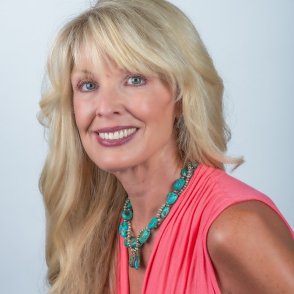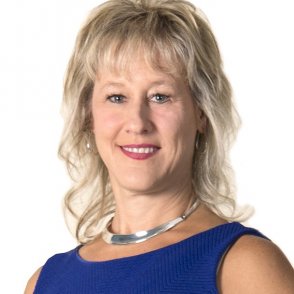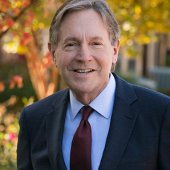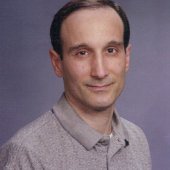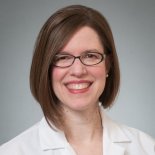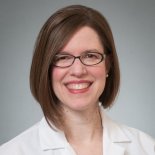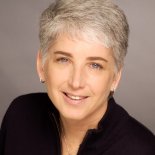Canceled Clients (4762)
Children categories

Train Your Body (438)
The show for fitness buffs or beginners. Expert guest from the American College of Sports Medicine (ACSM) discuss all areas of fitness, nutrition, athletics and sports medicine.
View items...
Staying Well (382)
RadioMD’s “talking” Health A-Z hosted by senior health correspondent, Melanie Cole, MS. Melanie interviews experts in the world of health, wellness, fitness and medicine.
View items...
Healthy Talk w/ Dr. Michael Smith (698)
Integrative physician, Michael A. Smith, MD is committed to providing listeners with the most current health information available.
View items...
Naturally Savvy (899)
Registered Holistic Nutritionist, Andrea Donsky and health expert Lisa Davis discuss their passion for living a natural, healthy lifestyle.
View items...
Eat Right Radio (48)
EatRight Radio, with experts from the Academy of Nutrition and Dietetics, discusses food and nutrition topics, healthy weight, allergies and health conditions, healthy aging, food safety and so much more. Give us 10-minutes and we'll give you the important information and expert advice from registered dietitian nutritionists to help you eat right, feel better, and live a healthier life. Hosted by Melanie Cole, MS.
View items...
Sharecare Radio (235)
Sharecare Radio, hosted by Sharecare’s own Dr. Darria Long Gillespie, SVP of Clinical Strategy at Sharecare, will appear live every Tuesday from 12 to 1 p.m. EST on RadioMD. Dr. Darria will break down the top health news of the week, pull in experts from around the country on a wide array of health topics and answer listeners’ live questions on all things health.
View items...
Wellness for Life (455)
On Wellness For Life Radio you will learn practical, easy-to implement tips to improve your life and start feeling better — the natural way.
View items...
The Wizard of Eyes (163)
Dr. Robert Abel Jr. talks about many of the important and unrecognized parts of our visual system which we so often take for granted. The show covers the usual common ocular disorders with an East/West approach to both prevention and therapy. The eye-brain connection is presented with information about memory retention, Alzheimer's, the myopia epidemic, and many more subjects. Dr. Abel discusses how the eye and vision are connected with remote parts of the body including your gut flora, musculoskeletal system, blood pressure, drugs and lifestyle. practical and simple health tips.
View items...
Code Delicious with Dr. Mike (135)
Code Delicious with Dr. Mike breaks all the rules. Unabashedly confronting the questions, concerns and conundrums that continually confuse both public and experts alike; Dr. Mike takes us on a tasty trip of inquiry.
View items...
CLEAN Food Network (98)
This show is a call to action for all the clean eating revolutionaries that care about their health and how and what they eat. Non-GMO, natural, organic . . . food the way nature intended. The clean food movement is huge and is growing exponentially. This companion program talks to experts in food preparation, healthcare, celebrities, and even those companies that care enough to provide the best, wholesome, organic foods and groceries.
View items...
Talk Healthy Today (213)
Looking to create your best self? Whether it’s good-for-you lifestyle hacks, smarter ways to supplement, or tasty tips to fuel optimal health, Talk Healthy Today brings you the latest research, tools, and common sense tips you need to get and stay healthy... starting today!
View items...
Be a Doer (17)
Be A Doer features master coach and TV personality John Abdo as he shares health and fitness tips aimed at getting you in shape – and keeping you there!
View items...The Power of Probiotics (3)
Probiotics is a major global industry. But like any industry, it had to have a beginning. Natasha Trenev is the daughter of an Eastern European family where the manufacturing of yogurt was a generational business. When Natasha emigrated to the US in the 1960’s, she brought with her 750 years of family experience with probiotics – and introduced the science (and the term itself) to her new country. Today, Natasha’s California-based Natren, Inc. is the recognized pioneer in probiotics and company founder Natasha Trenev has earned recognition as the Mother of Probiotics. Her more than 50 years of work in natural health is at the core of the unparalleled success of her company – and you will benefit from her depth of expertise in each and every episode of THE POWER OF PROBIOTICS.
Probiotics are live microrganisms that are commonly referred to as ‘friendly,’ ‘good’ or ‘healthy’ bacteria that function to help maintain the natural balance of organisms in the intestine. Throughout Natasha’s extensive work in the field of probiotics, she has always been amazed by how nature provides the very ‘good’ bacteria that can help overpower ‘bad’ bacteria to keep our digestive tracts functioning at peak performance. Properly cultivating friendly bacteria and ensuring their potency is at the core of the Natren Process. Natren is cited – by retailers, by the medical community and by consumers – as the best probiotic supplement available. Only Natren carefully chooses its probiotic cultures, formulates and manufactures its industry standard probiotics in its own plant and utilizes a specially-formulated oil matrix to protect probiotics bacteria to survive until they reach their destination in the upper small intestine. This is why only Natren is the most trusted probiotic supplement on the market. Truly, where other probiotic supplements promise – Natren Delivers.
To learn more about how probiotics can benefit your health, we are proud to introduce you to THE POWER OF PROBIOTICS with The Mother of Probiotics, Natasha Trenev.

Your Brain Health (24)
Noted Los Angeles-based neuroscientist and media personality Dr. Kristen Willeumier launches Your Brain Health with Dr. Kristen Willeumier, a podcast series that explores the latest news and information in the burgeoning science of brain health.
View items...Additional Info
- Segment Number 1
- Audio File wellness_for_life/wl450.mp3
- Featured Speaker Christine Horner, MD, FACS
- Book Title Radiant Health, Ageless Beauty
- Guest Website https://drchristinehorner.com/
- Guest Facebook Account https://www.facebook.com/drchristinehorner
- Guest Twitter Account @DrHornerMD
-
Guest Bio
Christine Horner, MD, FACS, is a nationally known surgeon, author and professional speaker and holds two board certifications: the National Board of Surgery and the National Board of Plastic Surgery.
Horner was recognized as a leader in her field shortly after starting her plastic and reconstructive surgery practice because she successfully ran a national campaign to pass laws requiring insurance companies to pay for breast reconstruction following mastectomy. Her five-year crusade with the Breast Reconstruction Advocacy Project (BRA Project) led to the passage of a federal law that was signed by President Bill Clinton on Oct. 21, 1998. The law was unprecedented because it was the first law Congress passed requiring insurance companies to pay for a specific surgical procedure.
Horner is the award-winning author of, “Waking The Warrior Goddess: Dr. Christine Horner’s Program to Protect Against and Fight Breast Cancer,” (3rd Edition/2013/Basic Health) and is one of the country’s leading authorities on breast cancer prevention. Her most recent book, “Radiant Health, Ageless Beauty” (Elgea Publishing, 2016), won the 2017 Elit Award for Best Book in Health, Medicine and Nutrition and is a 30-day program to discover your own extraordinary health, beauty and longevity.
- Length (mins) 30:02
- Waiver Received Yes
- Host Susanne Bennett, DC
Additional Info
- Segment Number 1
- Audio File wellness_for_life/wl449.mp3
- Featured Speaker Denise A. Pancyrz
- Book Title The Virgin Diabetic: Reverse the Effects of Type 2 Diabetes, Reduce Medication, and Improve Your Glucose Levels, Second Edition
- Guest Website Reverse My Diabetes
- Guest Facebook Account https://www.facebook.com/reversemydiabetes
- Guest Twitter Account @MyDiabetesGone
-
Guest Bio
Denise A. Pancyrz is a national diabetes reversal and holistic lifestyle coach, speaker, and author of The Virgin Diabetic: Reverse the Effects of Type 2 Diabetes, Reduce Medication, and Improve Your Glucose Levels, Second Edition. Like millions of Americans, she was burdened with type 2 diabetes, prescribed a handful of medications, four daily insulin shots, and endless trips to the doctors. After hearing from the medical community there was no hope to stop the insanity, Denise realized she needed a new course to regain her health naturally. Denise restored her health through holistic lifestyle changes. No more medication – no more insulin injections – no worry of drug side effects.
Denise is certified in Holistic Nutrition and Homeopathy. A Certified Six Sigma Green Belt, Denise spent a decade in the laboratory industry. After she received her diabetes diagnosis, she created her blueprint to reverse the deadly effects of diabetes paving the way for diabetics to truly learn how to reduce or eliminate medication and insulin while improving their glucose levels.
Denise’s journey started in Chicago until she and her husband, Larry, found their paradise in Naples, Florida. Denise and Larry love to walk on the beach, golf, and enjoy all that Naples has to offer.
Denise is co-Chair for Blue Zones Project® Retail Food Committee—Southwest Florida, member of the American Nutrition Association, National Association of Nutrition Professionals, and Marco Island Sunrise Rotary Club. - Length (mins) 33:42
- Waiver Received Yes
- Host Susanne Bennett, DC
Additional Info
- Segment Number 1
- Audio File wellness_for_life/wl448.mp3
- Featured Speaker Bruce Alan Kehr, MD
- Book Title Becoming Whole: A Healing Companion to Ease Emotional Pain and Find Self-Love
- Guest Website Potomac Psychiatry
-
Guest Bio
Bruce Alan Kehr, MD, is founder and president of Potomac Psychiatry. He specializes in helping patients with anxiety, depression, obsessive compulsive disorder, PTSD, life adjustment issues, and bipolar disorder, and frequently lectures on many aspects of psychiatry and psychotherapy, including the use of genetic testing in diagnosing and treating emotional distress; medication adherence, where he is recognized as an expert; and on the neuropsychiatric aspects of traumatic brain injury. He is also the author of the recently published book, Becoming Whole: A Healing Companion to Ease Emotional Pain and Find Self-Love.
Dr. Kehr received training in psychotherapy at the Boston Psychoanalytic Institute, where he also completed his training psychoanalysis; and continued his psychoanalytic training in the Washington, D.C. area.
He received his BA from the University of Pennsylvania, followed by an MD from the Georgetown University School of Medicine. He is Board Certified by the American Board of Psychiatry and Neurology. - Length (mins) 31:37
- Waiver Received Yes
- Host Susanne Bennett, DC
Additional Info
- Segment Number 1
- Audio File wellness_for_life/wl447.mp3
- Featured Speaker Ilene Smith, Somatic Experiencing Practitioner
- Book Title Moving Beyond Trauma: The Roadmap to Healing from Your Past and Living with Ease and Vitality
- Guest Website Ilene Smith, Somatic Experiencing Practitioner
- Guest Facebook Account https://www.facebook.com/SomastasisLLC/
-
Guest Bio
Ilene Smith is the author of Moving Beyond Trauma: The Roadmap to Healing from Your Past and Living with Ease and Vitality. She is a certified professional coach and Somatic Experiencing practitioner who is passionate about helping others explore life with curiosity and exuberance. Her research into Somatic Experiencing and eating disorders has contributed to the importance of Somatic Experiencing and body-based therapies in recovery. Ilene has also worked extensively with patients suffering from addiction.
With master’s degrees in exercise physiology and mental health counseling, Ilene blends talking, touch work, and movement to create synergy between a client’s body and mind. In addition to her private practice, Ilene has developed a series of trauma healing workshops and lectures, which she hosts worldwide. She lives in Arizona. - Length (mins) 27:09
- Waiver Received Yes
- Host Susanne Bennett, DC
Additional Info
- Segment Number 1
- Audio File wellness_for_life/wl446.mp3
- Featured Speaker Michael S. Evangel, DC
- Organization The Super Mike Show
- Guest Website Michael S. Evangel, DC
- Guest Facebook Account https://www.facebook.com/Evangel-Michael-S-DC-211299705597947/
-
Guest Bio
Dr. Michael S. Evangel, Chiropractic Physician, is the owner of the Chiropractic Wellness Center in Ramsey, NJ. For over 30 years, his mission is to provide state of the art, high-quality care to people of all ages.
His practice specializes in treating a variety of conditions, from clinical nutrition to chronic low back and neck pain to rehabilitation following an accident or injury. They also provide information about improving your diet, what supplements to take, avoiding toxins, creating a healthier workplace, and increasing the overall quality of your health. - Length (mins) 34:19
- Waiver Received Yes
- Host Susanne Bennett, DC
Additional Info
- Segment Number 1
- Audio File wellness_for_life/wl445.mp3
- Featured Speaker Raphael Kellman, MD
- Book Title The Microbiome Breakthrough
- Guest Website Kellman Wellness Center
- Guest Facebook Account https://www.facebook.com/drraphaelkellman
- Guest Twitter Account @doctorkellman
-
Guest Bio
Raphael Kellman, MD, graduate of Albert Einstein College of Medicine, pioneered a groundbreaking new brand of medicine and healing. He seamlessly integrates holistic and functional medicine with his visionary understanding of the world and nature, the root of who we are and its connection to health and healing. Dr. Kellman was the first doctor to recognize the profound importance of the microbiome; he speaks on the topic around the world and literally coined the term “Microbiome Medicine.”
Widely respected as a groundbreaking force in holistic and functional medicine, Dr. Kellman has diagnosed countless thousands of patients around the world suffering from undiagnosed thyroid disease through his innovative testing approach which goes much deeper than conventional testing. Through his deep understanding of the importance of the microbiome, Dr. Kellman treats gastrointestinal issues, chronic fatigue syndrome, heart disease, autoimmune disorders, Lyme disease, cancer, autism spectrum disorders, and unexplained, unresolved health issues.
Informed by his background in the philosophy of science, Dr. Kellman’s treatments are administered with compassion and kindness. He draws on the latest research to address patients’ biochemistry, metabolism, hormones, genetics, environment, emotions, and life circumstances to help them achieve optimal health. - Length (mins) 32:41
- Waiver Received Yes
- Host Susanne Bennett, DC
Additional Info
- Audio File christiana_care/crc025.mp3
- Doctors Brandt, Lynsey
- Featured Speaker Lynsey Brandt, MD, PharmD
-
Guest Bio
Dr. Brandt specializes in geriatric medicine with additional interests in graduate medical education and faculty development. She joined Christiana Care Health System from the Perelman School of Medicine at the University of Pennsylvania, where she was an assistant professor of clinical medicine. Dr. Brandt is board-certified in Internal Medicine and Geriatric Medicine.
Learn more about Lynsey Brandt, MD, PharmD -
Transcription
Melanie Cole (Host): Welcome to ChristianaCare’s Swank Memory Care Podcast series. I’m Melanie Cole and today, we’re talking about medicines that affect your memory. Our speakers in this podcast series represent the Swank Center for Memory Care and Geriatrics, Delaware’s first and most comprehensive outpatient program dedicated to the assessment and assistance of older adults and their caregivers coping with dementia or other neurocognitive disorders. Joining me is Dr. Lynsey Brandt. She’s an Associate Medical Director at the Swank Center for Memory Care and Geriatric Consultation at ChristianaCare. Dr. Brandt, thank you so much for being with us today. First before we get into the medications that can affect our memory, tell us a little bit about your unique background.
Lynsey Brandt, MD, PharmD (Guest): Well thank you for having me and thank you for asking. So, my background is a bit unique as you said. I was originally trained as a pharmacist before I decided to go to medical school. And I recall working in the pharmacy and feeling a little bit removed from my patients and wanted to be a little more directly involved in their care and in their lives and so I took that background and applied that in my medical training and have carried that through into my profession here in geriatric medicine.
Host: That’s so interesting and it’s such an interesting profession that you’re in. So, when a patient experiences significant memory loss, it’s important they seek a medical evaluation obviously to evaluate for potentially modifiable lifestyle or medicational causes of their changes in memory. Tell us how medications can cause changes in memory or clarity of thought.
Dr. Brandt: Absolutely. So, when people come to see me, and they are experiencing a change in their memory, I am charged with looking for underlying causes that we could potentially modify and to help them do better. So, as you stated, medications are one of the major categories that we focus on during tis evaluation. Medications can affect one’s clarity of thought or even their memory directly by the way the medication works in the body. For example, some medications are called anticholinergic medications and these medicines oppose the chemical in our body that help us to remember things. Also, medications can interact with other medicines that someone is taking. So, for instance, you could be using one medicine and it might affect the metabolism of another medicine such that both of them maybe hang around longer in the body or give more affect than either of them would individually.
And finally, patients can also have effects from stopping a medication. So, if it’s something they’re supposed to be taking everyday and they abruptly discontinue it, that might also give them some changes in their memory or their behavior or their clarity of thought.
Host: Well thank you for that explanation Dr. Brandt. So, the aging body handles medications differently which can increase a person’s risk of experiencing these side effects such as memory loss. Do we have any risk factors for this? Do we know about an individual’s risk of a medication causing memory issues?
Dr. Brandt: Yes so, as you alluded to, the changes in our body happen almost universally, naturally as we age. For instance, our kidney function is something that declines with age. And as you may know, certain medications are cleared from the body through the kidneys. So, for example, a patient could be taking a medication called, I’ll use an example specific, gabapentin is one example of something that can be taken for a number of reasons. Often, it’s used for nerve pain or neuropathy. This medication is cleared out from the body through the kidneys. And so, as our kidney function slows down, the level of gabapentin in the body could build up and hang around longer and result in side effects such as confusion, drowsiness, dizziness, or even forgetfulness.
Other things that happen as we get older are changes in our body composition. We have less water and more fat in our systems and some of the medications that distribute into the fatty tissues also might hang around longer. For example, a medicine like Valium if you have ever heard of that, could once a person takes a dose of Valium, could be in their system for many, many days and really have a lasting effect on their memory.
Host: Well thank you again for that. So, let’s talk about besides the ones that you’ve mentioned, gabapentin and Valium, categories of medications. Are there some that are more likely to cause problems when we’re talking maybe sleep meds, because there’s a lot of those and anxiety or antidepressants, stomachaches. There’s so many medications out there that can cause issues. Tell us about some of them.
Dr. Brandt: Now the first thing I will say, I always give a disclaimer when I’m presenting this information for folks. If at some point, I name a medication and it’s something that someone listening here is taking, I don’t want to insight panic. Because in any given patient, the medicine might be the right thing for that particular patient. So, just because it might be on my list of concerning medicines here, perhaps that is the right choice for someone. And I also want to also encourage people that if again, you hear of a medicine here, that I mention is a concern, I wouldn’t want you to stop that abruptly. I’d encourage the patient to discuss it with their medical provider and decide whether it’s something that they want to maybe taper off of or wean off gradually.
With that being said as you said, one of the ones we look at almost universally would be sleeping medications. So, both over-the-counter or prescription. People commonly use something called diphenhydramine. That’s in a lot of sleep aids. It’s sometimes combined also with other pain medicines. So, like acetaminophen and diphenhydramine or naproxen and diphenhydramine. Those are pain medicines with the sleeping medicine can absolutely cause people to be more forgetful and not only that, more off balance and at risk of falling.
Other medicines would be anxiety or nerve pills. Earlier I mentioned the word Valium, the generic name is actually diazepam. So, nerve pills like diazepam, lorazepam can cause people to be forgetful, disoriented, maybe even hallucinate. In addition to just being really drowsy and maybe even a little depressed.
Other medicines we would worry about would be pain medications, usually the narcotics so something like morphine, or oxycodone or even codeine. And then other ones that people might not suspect as much so commonly I see people on medicines for stomach pain or irritable bowel. An example would be something called dicyclomine there’s a common name of Bentyl for that medicine. Notice I’m giving you mostly generic names because we try to speak in the generic drug names. Also medicine for bladder control. Something called oxybutynin is a common one or tolterodine. These medicines while they are good in that they help with the bladder control problem, or the one that I mentioned earlier, the stomach issues; they also tend to cause forgetfulness. They are all in that category of what I called anticholinergic medications, and which can really impact the memory and clarity of thought.
Host: Such a good explanation of the different classes of medications Dr. Brandt. So, how can a patient and you mentioned not to freak out about it, but how can a patient and provider consider those risks and the benefits and what should they discuss and as you said, not to panic about it, if someone does learn that they are taking a medication which can affect their memory, it’s important that they don’t stop abruptly but tell us about the discussion between a physician and the patient on these medications that might affect their memory.
Dr. Brandt: Absolutely. So, I spend a lot of time in my practice exploring what the underlying cause is for the reason a patient might be using one of these medicines. Let’s take sleep as an example. So, sleeping pills are commonly used by many people. We spend a lot of time looking at what is the difficulty with the sleep? For instance, is someone drinking a lot caffeine? Is there a way we can modify that behavior? Or is someone say napping a lot during the day in which case they’re going to be more awake at night. Are there behaviors and other nonpharmacologic things that we can modify in their life that might make the need for a sleeping medication less? So, that’s the first and foremost.
Another example would be anxiety. Again, there are a lot of other medication options or nonpharmacologic things we could do for anxiety. Counseling, meditation, exercise, those sort of things. and then once we – it takes a lot of partnering I would say with the patient and the provider. These patients have to trust us because oftentimes they’ve been on these medicines for years and we have to say look, this is another way that we could approach this. Do you trust me? Do you want to move forward and partner together? Knowing that this is I think a two way conversation and I want the patients to feel like they have some ownership so that they can give me feedback on maybe gradually reducing the medication and implementing some of those other lifestyle type changes.
I often use the analogy also in geriatrics of it’s more of a dimmer switch rather than an on off switch. So, I do a lot of kind of dialing back slowly and I think whenever we gradually make these changes, presuming someone isn’t having a horrible reaction to something; it’s just something we want to – we can slowly dial back, I find that people tolerate that much better. And are often able to come off of these medicines in the long term.
Host: What important information we’re giving out here on this episode today Dr. Brandt. Wrap it up for us what you would like patients and their caregivers and their loved ones to know about medications that can affect memory, those discussions to have with your physician as you said you must be trusted because some of them have been on these medications for a very long time and what you want them to know about considering those risks and benefits based on what they need the medication for.
Dr. Brandt: I think the take home point would be to always scrutinize the medications anytime a patient is having a new symptom. So today we’re speaking about memory but it could be another symptom even, something maybe even totally noncognitive anytime a patient presents with a new symptom, we should always question could a medication be at least part of the cause for this symptom. Because if we don’t, what we might end up doing is giving another medicine to treat that symptom which might give another side effect and then we end up on another medicine to treat that side effect. We call this the prescribing cascade. So, I think we always have to check ourselves even us physicians sometimes we might forget to do this. Just stop, pause, before we add something see if there is something that we could subtract. And another mantra in geriatrics that I fail to work in but I think it’s important to recognize is anytime a patient is using a medication, whether it’s for memory or for another reason, we always want to start low and go slow. So, we want to – in older adults we might not – they might not tolerate a full strength of something so we often will start with a half of a tablet or just a very lowest strength and gradually increase the dose if tolerated, monitoring very closely for side effects such as memory problems or other intolerance.
Host: It’s great, great information and so important. Thank you, Dr. Brandt, for joining us today and telling us about this really important topic. That concludes this episode of ChristianaCare’s Swank Memory Care podcast series. To learn more about programs and services or to schedule an evaluation at the Swank Memory Center, Delaware’s first and most comprehensive outpatient program dedicated to the assessment and assistance of older adults and their caregivers coping with dementia and other neurocognitive disorders you can call 302-320-2620 or you can visit www.christianacare.org/swankmemorycare for more information and to get connected with one of our providers. Please remember to subscribe, rate and review this podcast and all the other ChristianaCare podcasts. Please share this show on social media with your friends and family. We can all learn about medications that have some of those risks that could affect the memory of our loved ones. It’s really important information and we’re learning from the experts at ChristianaCare. This is Melanie Cole. - Hosts Melanie Cole, MS
Additional Info
- Audio File christiana_care/crc026.mp3
- Doctors Brandt, Lynsey
- Featured Speaker Lynsey Brandt, MD, PharmD
-
Guest Bio
Dr. Brandt specializes in geriatric medicine with additional interests in graduate medical education and faculty development. She joined Christiana Care Health System from the Perelman School of Medicine at the University of Pennsylvania, where she was an assistant professor of clinical medicine. Dr. Brandt is board-certified in Internal Medicine and Geriatric Medicine.
Learn more about Lynsey Brandt, MD, PharmD -
Transcription
Melanie Cole (Host): Falls are one of the most serious health risks for older adults. They’re not only the leading cause of injury related deaths in this population, but they’re also a significant cause of disability. Welcome to ChristianaCare’s Swank Memory Care podcast series. I’m Melanie Cole and today, we’re talking about fall prevention in patients with dementia, advice for caregivers. Our speakers in this podcast series represent the Swank Center for Memory Care and Geriatrics, Delaware’s first and most comprehensive outpatient program dedicated to the assessment and assistance of older adults and their caregivers coping with dementia and other neurocognitive disorders. We’re joined today by Dr. Lynsey Brandt. She’s an Associate Medical Director at the Swank Center for Memory Care and Geriatric Consultation at ChristianaCare. Dr. Brandt, I’m so glad to have you with us today. Let’s talk about falls in the older population. How common is this?
Lynsey Brandt, MD, PharmD (Guest): Well thank you for having me. Yes, as a geriatrician, the topic of falls is near and dear to my heart. Studies show that one in four persons over age 65 falls each year. And if that wasn’t enough, here’s what really gets me. Less than half of these people report falling to a medical provider. And I’ll also add, falling is even more of a problem in our patients with dementia.
Host: Wow, that is a really interesting statistic. So, in patients with dementia, it may be a little bit different and their caregivers may be the ones to notice, but when do people first begin to notice balance problems? And is this something that can occur at the beginning of the onset? Is it something that kind of comes along with the frailty or the lack of movement? Tell us when we might notice these things and what we would notice.
Dr. Brandt: Ah, well I think that’s the 64,000 dollar question right, if we could figure out what leads to all of this, then gosh we could do a probably much better job in preventing all of the complications. But I think the problem with falls is that it is multifactorial. So, some people might have underlying conditions which predispose them to having difficulties with balance. They might have arthritic conditions or neurologic conditions, neuropathy where they can’t sense their feet on the ground and that might predispose them to having problems with their balance. Or it could be something else totally extrinsic to the patient. It could be something like a medication they are taking or something else going on in their environment that might cause them to be more again, off balance or at risk for falling. So, as to when people first start to notice it, I almost want to say your guess is as good as mine. Because it’s so variable. There’s not really one kind of universal or blanket experience so to speak.
Host: Well there certainly isn’t so then let’s talk about the risks for falling because if someone is aging in place, if they’re at home, maybe they have a caregiver; those things in the home, carpets, and stairs and shoes. There’s so much. This is a very comprehensive topic Dr. Brandt and then we’ve done a podcast you and I on medications that can affect memory, but medications can also contribute to dizziness and falls. Speak about some of these risks that you see and if there’s a way that we can mitigate some of those risks.
Dr. Brandt: Okay. Thank you for asking. How much time do we have? We could go on forever. So, to follow up on what you said and to touch on the topic of home safety. So, we frequently will talk about home safety. Sometimes it’s kind of toward the end of the visit but I think it’s a really important thin gto think about even up front. So, people have things in their homes, throw rugs, clutter, low lighting, cords that they can trip over, oxygen tubing they could trip over, pets getting underfoot or just not having adequate handrails to grab onto. There’s a lot of room for improvement in that home environment and for people who are concerned about this, they could even request a home safety assessment to be done by a professional. Usually an occupational or sometimes a physical therapist or a visiting nurse who can actually come into the home and give them advice on these sort of things.
Also getting back to the topic of medications, medications absolutely are another factor that we evaluate when a person presents with a fall. Interestingly, a lot of the medications that can cause problems with memory or dementia, are the same medications that we focus on as risk factors for falling. So, some examples would be sleeping medications, anxiety or nerve pills, pain medications, blood pressure medications which could lower the blood pressure too much and result in dizziness and other medications that fall in a category of what we call anticholinergic which are medicines that have a wealth of effects on the body but they often result in patients feeling drowsy, dizzy, off balance. Some examples of those would be medications for stomach pains, such as dicyclomine or Bentyl or hyoscyamine or Levsin or medications for bladder control, oxybutynin, Ditropan, tolterodine, Detrol.
Also, I want to mention muscle relaxants. These are medicines that people often are placed on after they’ve had a fall or an injury. Sometimes, they’ll visit an emergency department and end up with a prescription for something called cyclobenzaprine or Flexeril. This is another medication that while it’s intended to help with pain, it can sometimes cause more dizziness, drowsiness, off-balance and lead to that next fall. So, I would encourage our patients who are listening and their caregivers to always scrutinize the medication list and when there’s been a fall, to really ask the provider to take the time and work through that medication list and see if there is something there that can be leading to the risk of falls.
Host: Well I’m so glad that you mentioned earlier about some of those falls not even being reported. Because it’s really so important to help identify potentially modifiable risk factors, right, to prevent those future falls. There’s a lot of technology out there today Dr. Brandt. There’s the new apple watch with fall detection. Can those kinds of things help seniors and thereby if it’s in the technology there, then it does get reported. Somebody know about it.
Dr. Brandt: I’m glad you brought that up. You’re right, there is so much technology and sometimes our seniors might be a little bit intimidated in the realm of technology. But I would encourage them to take advantage and look into what we could access. So, for example, we’ll often recommend that people use or obtain something called a personal alarm. This would be a button that they wear sometimes it’s a necklace or a watch or bracelet such that if they were to have a fall, and not be witnessed and no one be home with them, they could activate that button and then someone could come to help them. One interesting feature some of these devices actually are produced such that they would sense a change in position so that heaven forbid, if someone falls, and were to lose consciousness, the device would automatically be activated, and emergency services would be contacted. Which I think is really a great feature and something that I recommend people to look for.
In terms of other technologies, I think there are other things that are being developed for example even just monitoring falls and keeping track of the falls. There are apps and things like that that someone could use. Because when I, as a provider, see someone in the office, and I’ll say how many falls have you had in the last month or in the last six months. People really struggle sometimes to come up with that information so I think there’s a variety of technologies that patients can use to help us assess and manage them better.
Host: Well that’s great information. So, let’s speak about if they do fall and that thing that increases the mortality, breaking a hip, breaking a bone, any of these things. Can you give us some really good advice about bone health in our seniors and how we can protect them through exercise and diet as we age?
Dr. Brandt: Absolutely. So, bone health is such an integral part of what we must assess when we are assessing patients who are falling frequently or at risk of falling. All seniors, really as they age should have an assessment of bone health and especially those who are at increased risk of falling. So, this often would involve something called a DEXA scan which is a very noninvasive test where someone just lies on a table and has a scan of their usually their hips or their spine and that would tell us who is at risk for osteoporosis or thinning of the bones that can put one at risk for a fracture. Now if someone is found to be at increased fracture risk, there’s a lot of ways that they can strengthen the bones such as eating a diet rich in calcium, supplementing their vitamin D. these are kind of the building blocks of bones. As well as engaging in weight bearing exercise. It’s very, very critical part of keeping up their mobility, their strength, their balance and building that bone health.
And then finally, this is beyond the scope of our discussion today but there are some prescription medications that one could also use to help strengthen the bones if someone is found to have osteoporosis.
Host: Well thank you for that. So, before we wrap up, I’d like you to tell us about the Safe Steps Program, a unique program to evaluate patients who fall frequently or who are at risk for falls. What does the program involve and what kinds of providers are involved?
Dr. Brandt: Absolutely. And I’ll tell you about that program in one second. I do want to say I was going to mention one other thing because I think it’s important for our listeners here who might be especially interested in learning about falls relevant to dementia. If I could just mention that as well. We touched on this a bit earlier but our patients with dementia have certain risk factors that place them especially at increased risk for falling. They might have decrease in their safety awareness, decreased ability to safely use an assistive device such as a walker or a cane, they might also have changes in their walking or their balance that are inherent to the type of dementia that they have. So, I think it’s important just to recognize that our patients with dementia as I stated earlier are at increased risk of falling for those reasons. For instance, there’s some types of dementia Lew Body or Parkinson’s dementia that involve changes in their ability to regulate their blood pressure so these patients might stand up, have a drop in blood pressure and be at risk for passing out. And then also, patients with more advanced dementia may even have more difficulty just remembering or understanding how to walk safely. So I just wanted to touch on that because I know some people who tune in here maybe caregivers for patients with dementia and those caregivers are really being pressed to really do so much already and then when you’ve got someone falling, they have an even increased responsibility for supervising that person.
And back to the Safe Steps Program. Thanks for letting me mention. We are really proud of this program at ChristianaCare. This is a unique program where we evaluate patients who fall frequently or might just be at risk for falling. The patients are seen by both myself a geriatrician, and also by a physiatrist which is also called a rehab medicine doctor. So, they get two providers evaluating. I focus on the medical contributors for falling and then the rehab doctor looks more at other physical factors such as changes in their strength, their coordination, do they have one leg that’s longer than the other. Do they have a foot that drags on the ground. So, we really use our unique backgrounds to put together a plan to help prevent that future fall.
And then I’ll also add, we have a nurse from our Strong Bones program who assesses risk factors for bone health, educates patients and might even facilitate testing to screen for osteoporosis.
Host: Well I just would like your best advice please for fall prevention in patients with dementia and fall prevention for seniors in general. Please wrap it up with a summary of what you’d like listeners to take away from hopefully preventing those falls in the first place.
Dr. Brandt: So, I think the first thing is recognizing that a fall might be the very first and only symptom of an underlying medical condition. So, reporting that to a provider as we said at the outset, is so important because while some people might just think oh, it’s a normal part of aging. We providers don’t view that as such. And we want to look for those underlying causes. And so, looking towards fall prevention, really conducting a comprehensive evaluation is what we would do so some things we’ve mentioned already but just to kind of summarize that. A vision screen, if you haven’t been to your eye doctor recently. Checking the blood pressure making sure the blood pressure is stable both sitting and standing. And if the blood pressure does drop when someone stands, we might need to change their medications around to ameliorate or to help that. Scrutinizing the medicines as I said before.
Having a good physical exam to look for any other conditions like Parkinson ’s disease or something else that might have gone undetected until now. And then finally, that home safety assessment, possibly looking into physical therapy or other rehabilitative programs, referring for any sort of other devices if someone might need a brace to help with a foot drop. Looking at whether somebody needs a cane or a walker and whether they can use that safely. And then finally, I’ll also add for our caregivers, looking into caregiver support. So, for a caregiver who has to provide near constant supervision for someone who might be unsafe, that might be the time to look into maybe hiring somebody, someone who can come into the home and provide companionship and relieve that caregiver a little bit. I could probably go on, but I think those are most of the key points that I wanted to leave our listeners with today.
Host: Thank you so much Dr. Brandt. It is really great information. So, important for this population especially. So thank you again for joining us and sharing your expertise. And that concludes this episode of ChristianaCare’s Swank Memory Care podcast series. To learn more about programs or services or to schedule an evaluation at the Swank Memory Center, Delaware’s first and most comprehensive outpatient program dedicated to the assessment and assistance of older adults and their caregivers coping with dementia, and other neurocognitive disorders you can call 302-320-2620 or you can visit www.christianacare.org/swankmemorycare for more information and to get connected with one of our providers. Please remember to subscribe, rate and review this podcast and all the other ChristianaCare podcasts. I’m Melanie Cole. - Hosts Melanie Cole, MS
Additional Info
- Segment Number 1
- Audio File wellness_for_life/wl444.mp3
- Featured Speaker Joan Rosenberg, PhD
- Book Title 90 Seconds to a Life You Love: How to Master Your Difficult Feelings to Cultivate Lasting Confidence, Resilience and Authenticity
- Guest Website Joan Rosenberg, PhD
- Guest Facebook Account https://www.facebook.com/drjrosenberg/
- Guest Twitter Account @DrJoanRosenberg
-
Guest Bio
Best-selling author, consultant, and master clinician, Dr. Joan Rosenberg is a cutting-edge psychologist who is known as an innovative thinker, acclaimed speaker and trainer. As a two-time TEDx speaker and member of the Association of Transformational Leaders, she has been recognized for her thought leadership and influence in personal development.
Dr. Rosenberg has been featured in the documentaries “I Am”, “The Miracle Mindset”, “Pursuing Happiness” and “The Hidden Epidemic”. She’s been seen on CNN’s American Morning, and ABC, CBS, FOX, PBS and OWN networks, as well as appearances and radio interviews in major metropolitan markets. A California-licensed psychologist, Dr. Rosenberg speaks on how to build confidence, emotional strength, and resilience; how to achieve emotional, conversational and relationship mastery; how to integrate neuroscience and psychotherapy; and suicide prevention.
An Air Force veteran, she is a professor of graduate psychology at Pepperdine University in Los Angeles, CA. Her latest book, 90 Seconds to a Life you Love: How to Master Your Difficult Feelings to Cultivate Lasting Confidence, Resilience and Authenticity, was released February 2019. - Length (mins) 29:14
- Waiver Received Yes
- Host Susanne Bennett, DC
Additional Info
- Segment Number 1
- Audio File wellness_for_life/wl443.mp3
- Featured Speaker Greg Hammer, MD
- Book Title GAIN without Pain: The Happiness Handbook for Health Care Professionals
- Guest Website Greg Hammer, MD
-
Guest Bio
Greg Hammer, MD, is a pediatric intensive care physician, pediatric anesthesiologist, and professor at Stanford University Medical Center. A member of the Stanford WellMD initiative and the Wellness Committee for the American Society of Anesthesiologists, Dr. Hammer is currently the Chair of the Physician Wellness Task Force for the California Society of Anesthesiologists. He has been a visiting professor and lecturer on wellness at institutions worldwide and teaches GAIN to medical students, residents and fellows at Stanford.
Dr. Hammer’s clinical focus is in pediatric cardiac anesthesia and pediatric critical care medicine. His research is in developmental pharmacology and immunology, and he has an active laboratory with multiple ongoing studies in these areas. He has published widely on topics related to pharmacology and perioperative care of children undergoing cardiac and thoracic procedures as well as organ transplantation.
Dr. Hammer is a health enthusiast and meditator, utilizing a non-duality and mindfulness-based approach, including the GAIN method. Dr. Hammer is the author of GAIN without Pain: The Happiness Handbook for Health Care Professionals, which will be released May 15, 2020. - Length (mins) 28:39
- Waiver Received Yes
- Host Susanne Bennett, DC





